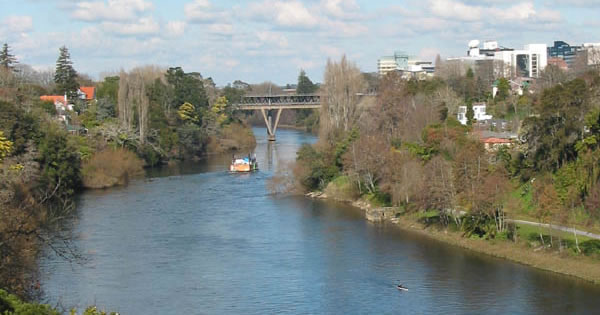The Government’s fresh water policy is under strain around the country.
Remember when they defined ‘bottom lines’ for quality as ‘wadeable’ (not swimmable), but ‘communities’ could improve on them if they wanted, and promised that no matter what, water quality would be ‘maintained or improved’?
Well, the reality is quite different. When ‘communities’ – either national or local – come together to discuss water, regressive farming interests squash all opposition to ensure they can continue to pollute with impunity as they have in the past.
Dairy farmers in particular are obsessed with the ‘grandparenting’ of pollution and use rights – this is where you allocate the right to pollute in the future to those who have polluted in the past.
With this attitude it is hard to see how water quality will get better any time soon.
The problem starts at the top with the Land and Water Forum (LAWF).
Environment Minister Nick Smith asked them to develop guidance for allocating the right to use and pollute fresh water – an issue that has become a political hot potato.
The group failed to come to a clear answer – a stalemate that is a sure sign of dairy industry stubbornness.
The report also talks about transferring water and pollution rights, but there is no mention of pricing – another clear sop to farming interests that want to retain the right to pollute and use public water for free.
If a national ‘collaborative process’ like LAWF can’t agree a way forward, what hope do local communities have of fighting well-resourced farming interests in the provinces?
Indications from Whanganui-Manawatu, Canterbury and Waikato confirm this worrying trend of grandparenting water pollution and use rights for dairy farmers.
Grandparenting is incredibly inequitable and inefficient and sets a worrying precedent.
Firstly, it puts the right to pollute in the hands of polluters, removing the public’s right to clean fresh water.
Secondly it punishes land users that pollute less, such as sheep and beef farmers, forestry and progressive dairy farmers.
Finally grandparenting (even dressed up in ‘good management practice’) creates a terrible incentive – these councils are encouraging farmers to increase their pollution now, so as to increase their future rights to pollute.
Such rights will be worth real money in coming years.
One consequence of such perverse incentives is to make it detrimental to do the right thing in anticipation of the coming rules.
Any farmers working to reduce their leaching will be punished with lower leaching rights.
Most worrying of all are the local politics that aid and abet this environmental destruction.
Canterbury we can understand – democratic elections for ECAN were suspended back in 2010.
However Horizons (Manawatu/ Whanganui) is a more worrying story, and the Waikato looks to be following down their path.
The Horizon’s One Plan was hailed by environmental groups, as farmers were supposed to reduce their leaching in order to make rivers in the Manawatu/Whanganui region fit for swimming and gathering kai.
Recently however, Horizons Regional Council has been handing out up to 20-year discretionary consents for leaching to farmers who apparently can’t – or claim they can’t – make the specified reductions in leaching.
This has turned out to be not the exception but the rule: 52 of the 61 farmers consented so far “required” these discretionary consents.
Even less savoury, at the request of the dairy industry, the council have hidden the difference between the One Plan target and the higher leaching levels now permitted.
How did Horizons do such an about face?
The answer is simple – politics.
First, the regressive farmers tried legal action to quash the One Plan, but when neither science nor law worked, they turned their attention to taking over the council.
It is not a difficult task when turnout for local elections is so low.
The real culprit here is the Government’s abdication of responsibility for water quality to rural communities.
Communities can fight to improve water quality, but any volunteer worried about their local river is up against well-funded lobbyists from the dairy industry guarding their corner.
You could call it democracy in action but is this really a fair or appropriate fight?
Similar scenes are happening all over the country – Waikato farmers are already squealing that cleaning up their river will spell “economic doom” for the region.
They deliberately parade self-interest as community interest.
From the start the only answer has been for greater leadership from central Government.
Central Government needs to set aspirations to make our fresh water fit for swimming and gathering kai and then charge regional councils with ensuring measurable improvement toward this goal.
Then if local communities actually wanted to change this default setting so they can pursue growth at the expense of the environment, they would have to make the case.

